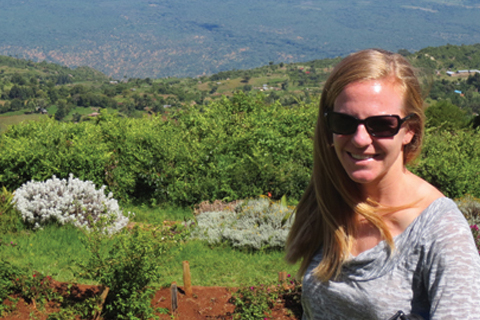Searching for higher ground

I have a running dream. I want to run as fast as I can run. After graduating from Rice University as a 2-time All-American in the Indoor Mile and outdoor Steeplechase, I have struggled to make an impact as an international athlete. This past summer, when I was left watching the Olympics, I decided that I wanted to give more to the sport and push my boundaries. I thought about what I could do to improve as a 3000 meter Steeplechaser and achieve at an international level in the sport. This thought session lead me to where I am now: at the High Altitude Training Campy (HATC) in Iten, Kenya with UK athletics and my new coach, Mick Woods.
I moved to Southwest London in October to join a training group based at St. Mary’s University under the supervision of Coach Mick Woods. Changing training environments is a big risk, especially when it involves a trans-Atlantic move away from familiarity, family, and loved ones. I craved this big move; I knew I needed training partners, like British star Stephanie Twell, who could push me on a daily basis and help me raise my performances. I wanted to work really hard, I wanted to surround myself with other British athletes who shared my same goals, and I wanted to integrate myself into the UK athletics system. It is easy to get comfortable following the same training and living routine. I felt like it was time to do something uncomfortable and challenge myself to adapt to a new training regime.
So far, I have definitely experienced a lot of discomfort, but the type of discomfort that leaves me with a smile on my face when the day winds down. With the support of Scottish Athletics and UK Athletics, I am fortunate to have the opportunity to train at altitude in Iten, Kenya for four weeks. As you approach Iten, you are greeted with a sign that states “Welcome to Iten—Home of the Champions.” Iten is the birthplace of several Kenyan running legends, including Peter Rono, Wilson Kipketer, and recent Olympic 800 meter Champion and World Record Holder, David Rudisha. UK Athletics believes in the benefits of altitude training and has a relationship with World Champion Lornah Kiplagat’s training center in Iten (for more information on the HATC, visit www.lornah.com). I am at the camp with a dozen other British Athletes, including Britain’s three 2012 Olympians in the 800 meters. I must admit, it feels very special to lace up my shoes and go for a run with Olympic athletes! In addition to the other athletes, UK Athletics has a doctor, two physiologists, a massage therapist, and a physical therapist accompanying the athletes on the altitude training trip to help us monitor our adjustment to training at in an oxygen-deprived environment 2,400 meters above sea level.
I must admit, I was a bit hesitant about going to Africa for four weeks to train. I have never focused all of my energy on one endeavor, and I was apprehensive of how I was going to handle the immersion into such a running focused environment. I have been in Iten for over two weeks now and I have loved it so far. It feels good to experience an environment that is centered on running with no distractions. The training facilities are top-class and the daily routine is built around training, sleeping, and eating: the three most important parts of any professional runner’s day. The life at the HATC is the perfect opportunity for me to fully embrace my love for running. So far, I’m relishing the intense focus on training.
Before morning runs, the physiologists check our hydration levels and blood oxygenation. Additionally, they ask us to rate how well we slept and our fatigue levels. Training at altitude is tricky. On one hand, you don’t want to over train and drain your body. On the other hand, you want to gain fitness while at altitude so it is important to put in an adequate workload. Getting this balance right is important for reaping the physiological benefits of training at altitude. I wear a heart rate monitor on every run to monitor how hard I am working. I had my first workout at altitude a few days ago, and the physiologists cycled alongside the athletes to test our blood lactic levels in between our efforts. This part of the sport is very new and exciting to me. I have never had my ear pricked and my lactic levels tested in a workout. I had my lactic tested at what I thought was the end of the workout, but after the physiologist consulted with my coach regarding my lactic levels, it was decided that I had more work to do!
Overall, the move to London and the Kenyan experience has helped me explore new territory as a runner and I am hoping it will help me run as fast as I possibly can. I am grateful for the opportunity to train and eat like a Kenyan (I love the Ugali they serve for dinner). Thinking about the history and the footsteps that have trained along the same trails that I am training on is inspiring. I am literally running in David Rudisha’s footsteps. My stay at the HATC is the beginning of my new running adventure, and I am looking forward to seeing how it impacts my racing over the next year.






